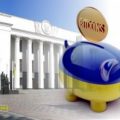
Russian officials have still not published the final version of the bill “On Digital Assets.”However, it has recently become known that experts are proposing to ban cryptocurrencies operating in public blockchains.
Head of the State Duma Financial Market CommitteeAnatoly Aksakov said that the experts involved in the discussion of the regulatory act decided to compromise with the Central Bank, which calls for outlawing all virtual currencies due to the inability to control their circulation. Analysts recommend legalizing only digital assets operating on the basis of closed networks, for example, XRP.
According to Daria Nosova from Fintech O2Consulting, all cryptocurrencies issued on public blockchains will be outside the legal framework because they will not correspond to the concept of a “digital asset.” It is worth noting that the repression will affect the leading coins in terms of capitalization and popularity: Bitcoin (BTC) and Ethereum (ETH). Nosova suggests that trading in legal virtual currencies will be regulated along with securities.
Employee of IC “Finam” Yaroslav Kabakovbelieves that the main difference between permitted and prohibited cryptocurrencies will be that the owners of the former will be able to defend their rights in court, and users of the latter will not have such a right. According to Kabakov, Russians will continue to buy and sell illegal assets on foreign platforms that are outside the jurisdiction of the Russian Federation.
The original version of the law consisted of twosections: on crowdfunding (rules for ICOs) and on digital financial assets (measures regulating coin trading). The document did not differentiate between public and private virtual currencies and did not introduce a ban on any assets. The regulation has been amended several times, so it is too early to sound the alarm. However, taking into account the latest initiative of experts, we can conclude that the general trend is moving towards “tightening the screws”. In this regard, the likelihood that the law will be purely restrictive increases.




